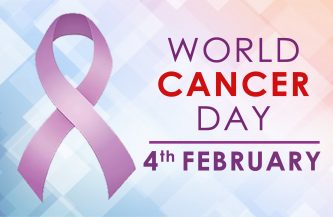Transformation through livestock – C. Lalawmpuii

Ms. C. Lalawmpuii (Maawmi) lives with her family in a small village called Hmuntha, located near the Tawi Bird Sanctuary within Serchhip District, Mizoram. She was brought up in a farming family, and her husband is a graduate who gives due importance to education. Concerned about the low quality and standard of the education system in their village, her husband took the initiative to uplift the standard of education and started running an English medium school. However, due to financial constraints, they were finding it difficult to run the school.

Salvation came in the form of Mizoram State Rural Livelihoods Mission. When it was introduced in their village, she joined Ruthi Self Help Group (SHG). She started to avail consumption loan from meeting regular expenses of the household. She availed loans amounting Rs. 44,000 for working capital through the SHG. She has since helped her husband run the school better by providing much better facilities, helping them to attract more students, thereby earning more profit while maintaining a considerable level of standard. Till date, they are running the school efficiently while making little progress from time to time.
To earn more and support her family from ancillary sources, she started rear chicken and pigs in her home. Her interest and sincerity in the livestock provided her with better returns, and her socio-economic status improved considerably. Since then, she has become one of the progressive livestock farmers in the village. Eventually, the Village Organization selected her as a Livestock Community Resource Person (Pashu Sakhi) under Mahila Kisan Shasaktikaran Pariyojana (MKSP).
However, there was a need to build her capacity and gain the confidence to serve the fellow villagers on livestock management, deworming and vaccination, integrated farming, among others. The trainings were on the livestock value chain, care, and management of livestock, deworming, sanitation, vaccination on pig and poultry. She underwent through training of effective training delivery and behavioural aspects of adult learning. She also went on exposure to various places, including RRTC, Umran.
The pig rearing in the village was traditional, with impoverished dwelling conditions, unhygienic feeding practices, no or minimal preventive, and health care. After she started her work as Livestock CRP, she began conducting the Farmer Field School (FFS) for the women farmers. She began demonstrating practices to keep the sty hygienic for the pigs, ensured fresh and clean food for the animals and provision of water far from the faecal and urine of the animals. She started providing first aid and folic acid injection upon mutual agreement and requirement of the villagers, since the no veterinarian who could attend to their cases regularly.
Most of the farmers rear pigs for fattening purpose, where they buy piglets from outside and rear it for few months before sale. She started raising a boar and sow and do breeding herself and taught other women farmers about the technique and method. The village has since become self-sufficient with the supply of piglets and now sell piglets in the neighbouring communities. She sincerely invigilates the sow while they are giving birth, which has reduced the mortality rate of among the piglets during delivery.
The village also improved a lot in rearing poultry. Chicks of broiler, kuroiler chicken, and rainbow rooster were supplied at an affordable price through initiatives taken by Maawmi with the help of the block livelihoods staff. The mortality rate in birds has declined after having informative sessions in the FFS on poultry farming. Not only the production in poultry meat has improved, but also, they have been supplying birds and meat to nearby villages. Before the implementation of MKSP, the demand for poultry meat was unmet.
Since the availability of appropriate livestock medicines is a problem in the village, Maawmi obtained these essential medicines through convergence with the Veterinary Department and from her own money for the villagers. She regularly visits the farmers and provided the much needed help when her service is required. She has enormously contributed towards the now improved and more systematic way of management with regards to cleanliness, housing, medication, and feeding, among others.
The table shows a comparison of the livestock farmer before and after MKSP implementation:

Photograph of Livestock CRP







